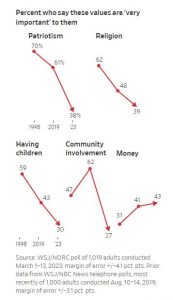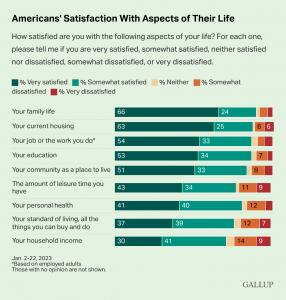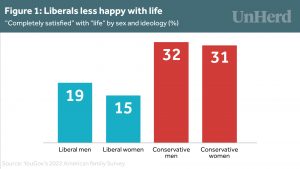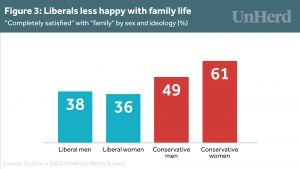Thankful for
Thankful for
Thankful for
Thankful, in
Welcome to worship today at Morrison Zion Lutheran Church. We exist to glorify God. We have set out to do this by gathering around the Gospel so that we may grow in the Gospel and go to others with this Gospel.
Grace and peace to you from God our Father and from Jesus Christ, our Lord:
In our reading today we have a little bit of a history lesson of these Israelites who had wandered through the desert. What they were going to do next is enter into the Promised Land, the land that they had been waiting for generation and generation to get to. It had been promised to Abraham and all the patriarchs were waiting for it, but what did they have to do first? They went to Egypt after a famine. After they were in Egypt, they grew large and then they were enslaved. Finally, they had to be saved through the plagues. They crossed the Red Sea and then went to the desert. What was that like? We heard about some of that. It was not easy and they went through many difficulties. But finally they are going to have all of these blessings, all these things that they have to look forward to and to be thankful for. They have so much to be thankful for. He talks about that. When you have eaten and are satisfied, praise the Lord your God for the good land he has given you. Later in Verse 12: Otherwise, when you eat and are satisfied, when you build fine houses and settle down, and when your herds and flocks grow large and your silver and gold increase and all you have is multiplied… Notice all the things that they are going to have and all the blessings they are going to have.
When we have all these blessings, you’d think people would be thankful. Today we’re talking about being unthankful. That’s the thing that we struggle with. We struggle with being thankful. This is what it was for the Israelites. God is warning them of that. But I wonder if that is true for us. Do we struggle with unthankfulness?
I looked at a couple studies recently and if you follow me on Instagram or Facebook, you might have seen this first one. It’s a little bit small, so I’ll read you a little bit of what it’s all about.
The picture here says these are the percentages of those who say these things are very important to us. The first one starts in 1998 and then the next is 2019. Then there is only a four-year difference between the next one, 2019-2023.

The first one is going down. It is “Patriotism.” In 1998, Patriotism was at 70%, in 2019 it was 61%, and in 2023 it is at 38%.
The next one is “Religion.” This is what people value. Religion was valued at 62% in 1998, 48% in 2019, and now in 2023 it is at 39%.
On the bottom, “Having Children” is the first one. In 1998, 59% valued it and thought it was important. In 2019 it was 43% and in 2023 it is 30%.
The next one is “Community Involvement.” In 1998 it was at 47%. Then it goes up in 2019 to 62%. In 2023 it plummets down to 27%.
The last one is going up. What is that one? What do people value more now? It’s “Money.” In 1998 it was 31%, in 2019 it was 41%, and in 2023 it’s at 43%. This is what people find important or valuable. Would you say that is what we find important or valuable and that is what we’re thankful for? How does that then affect our happiness?
I have three more here. This first one is “Satisfaction;” are we happy. I think happy and thankfulness deal with each other.
It starts out with 66% of people that are happy with family life. But then it goes down and down and down. In general, people are fairly satisfied.

But then there was this new study, and I’m going to put this up. It says “Conservative” and “Liberal.” The point is NOT to bash one or the other, but we’re going to talk about what these two different groups value.


The first one says Liberals are less happy with their life. The stats though are those who are “Completely satisfied” with “life.” The red are the Conservatives, and it’s 32% for men and 31% for women that are completely satisfied. They are happy. They are thankful for what they have. On the left is the Liberal side; 19% for men and 15% for women. That is a lot less satisfied with life and happiness.
The next one is those that are happy with their family life; the Conservative women at 61% and Conservative men at 49%. On the Liberal side, Liberal men are at 38% and Liberal women are at 36%.
What is the point of that? If we think about our blessings and what we have, it’s easy for us to be unthankful for all the blessings we have. We are going to talk about the things we SHOULD be thankful for but why we might struggle with being thankful for them. Are we thankful for all the blessings? If you think about what God has given us, what God had given those Israelite, He has given them all these blessings and what are they doing? “I can do it on my own.” Or they take it for granted.
Think about those charts of what is going down in what people value and then their happiness. If people are not happy with their country, they aren’t thankful for what God has given them of where they live or the things that are going on. If they aren’t thankful for their faith, if they’re not thankful for God, if they’re not thankful for children, they don’t value children, isn’t that something that is being said all the time? “Children are a burden.” “Children are too expensive.” “There are too many people already.” Are we thankful for the blessings that we have? Are we thankful for the community that we have, the people that God has put in our life?
The reason that I put those two up there, the Liberal and the Conservative, is because more often Conservatives or more religious and have some of these Christian values that we are talking about to be thankful for the blessings you have. Things like where you live and what God has given you, believing that there is a God who gives you these things and that it’s not just all about “me” and what I have. We can be thankful for family. Do you think that makes a big difference? We have to ask “How thankful am I for all the things that God has given me—for where I live, for my government (even if they’re not perfect), for my family, for my kids (who can be difficult at times), for the young and the old?” Are we thankful for those blessings?
The other side is that if I do have those things, “Am I boastful in those things? Am I proud and not giving credit to God, who gives me those things?” That’s what God talks about in here as well, of what God is doing for us. He talks about remembering and thinking about all the things that you have. Then He says …then your heart will become proud and you will forget the Lord your God, who brought you out of Egypt, out of the land of slavery. He led you through the vast and dreadful wilderness, that thirsty and waterless land, with its venomous snakes and scorpions. He brought you water out of hard rock. He gave you manna to eat in the wilderness, something your ancestors had never known, to humble and test you so that in the end it might go well with you. What is God talking about here? He is talking about all the ways that He saved His people. That’s the lesson that the Israelites knew. “We couldn’t save ourselves. God took us out of Egypt. God led us through the desert.” They knew that they couldn’t do it.
So what should we be thankful for? Be thankful for salvation. For the Israelites, they knew their God loved them and saved them. How did He show this and explain this? He showed them with that Passover, that Lamb of God that was sacrificed to put on the door frames that saved their son from death. This was the salvation that God would bring them and then He would bring them out of Egypt.
What about us? That picture of that Lamb of God that is sacrificed to bring out His people, to redeem them—that is pictured and representing the true Lamb of God, the Lamb of God who goes to the cross for us. It’s meant to show us Jesus and to tell us we are saved and that we can’t do it on our own. There are so many times when we become boastful or proud in what we do or who we are, especially when? When we compare ourselves to others and think “I do better than they do.”
But when it comes to salvation, we can’t do it. That’s what God was reminding the Israelites and we need to remind ourselves of over and over again. Are we thankful for His salvation? We are forgiven. Every one of our sins is forgiven. When we are thankful for that, we show that love to God and to others.
It’s so easy for us to get distracted with so many other things and our wants. “God give me this.” “God help me with this thing.” “God, focus on this thing.” We get distracted from the most important thing—our salvation, that eternal forgiveness and peace. Whatever else He might give us or not give us doesn’t really matter.
But that’s part of this. Are we really thankful for EVERYTHING that God gives us? We are thankful for the blessings He gives us, but are we thankful for all the troubles? That’s kind of what God was telling the Israelites. “Remember, you were brought out through these difficulties. You were led through the Red Sea. You were led through by these plagues. You were led through in the desert.” But notice what He says. He gave you manna to eat in the wilderness, something your ancestors had never known, to humble and test you so that in the end it might go well with you. Do you think God had a purpose for those difficulties He gave them? Of course He did. He tells them it was to humble them and to test them and to help them see that God is there and God is their strength. God tells us the same things—to trust in Him in all things.
In 1 Thessalonians 5, he says: Rejoice always, pray continually, give thanks in all circumstances… We know in Romans he talks about the difficulties we face and how perseverance builds character and character, hope. We know that God doesn’t give us anything without meaning, even if we don’t really understand. He encourages us and says this in Philippians 4: Rejoice in the Lord always. I will say it again: Rejoice! Let your gentleness be evident to all. The Lord is near. Do not be anxious about anything, but in every situation, by prayer and petition, with thanksgiving, present your requests to God. And the peace of God, which transcends all understanding, will guard your hearts and your minds in Christ Jesus. He is saying, “Trust in me and know that in all circumstances you can rejoice because I have what is good for you in mind.”

How many of you have heard of Captain America? Lots of you—he’s a super hero. I’m going to show you a second captain America. This is Christian Pulisic. He is the captain of the U.S. Men’s Soccer Team. If you watched the World Cup recently, you might have seen him. He is very famous in world soccer because he is an American player that has been playing in Europe for a while and he is pretty good. He is the captain of the U.S. Soccer Team. He was recently interviewed and he was talking about his Christian faith. He talked about this after being injured. He said, “When I go to pray, I don’t ask God to fix this. I say ‘Help me to see this from your perspective.’” What is he saying? “When I have a difficulty, a trouble, it doesn’t mean you have to fix all my problems, but let me see, let me understand why this might be happening.” That’s exactly what Philippians 4 says. It says that the peace of God, which transcends all understanding, will guard your hearts and your minds in Christ Jesus. Because we know that Paul says this, no matter what happens, the troubles, the difficulties, no matter what I may face, I can trust in Him because God has good in mind for me and mine.
In Romans 8, Paul says this: For I am convinced that neither death nor life, neither angels nor demons, neither the present nor the future, nor any powers, neither height nor depth, nor anything else in all creation, will be able to separate us from the love of God that is in Christ Jesus our Lord. And just a few verses before that: And we know that in all things God works for the good of those who love him, who have been called according to his purpose. We know that even in difficult times God is working for our good. So just like captain America says, we can trust in Him and ask Him not to fix all my problems but help me understand. “Help me see that you have good in mind for me, maybe not even my happiness, but my eternal good in mind.”
How will that be shown? We know that most importantly we are focused on God’s salvation and what He has done for us, but when we’re thankful, it shows. We are thankful and then that is shown in thankful actions. That’s what God tells us to do—praise the LORD your God for the good land he has given you. In other parts of Deuteronomy He says to be careful to follow the ways that God has put out in front of you. When we are thankful, we give thanks. We praise God. We come with joy. Even in hardship, even in health problems, even in financial problems, even in whatever problems we may have, we come to God with thanks because we know He loves us. Then that shows itself to others—to be thankful for the people that God has put in your life, to show that love to others, to show joy and thankfulness even when things are hard in this world, especially when things are hard in this world.
So when things may be difficult, when you may be facing a difficult surgery or hardship, you can come and say “I know God has this and He has good in mind for me and mine.” What that means for others can point them to Jesus, who does love them, when we show that thanks to one another and rejoice in all things knowing that the Lord has given us so many blessings.
There will be difficulties. But most of all, He gives us His Son and salvation. He gives us the peace of knowing that no matter what we’ve done, no matter how unthankful we are for all of those things, He forgives us. He brings us back to Him over and over again. He brings us to Him and forgives us. He says “You are my child.” He blesses us with that forgiveness and peace and lets us be a light knowing that He has loved us and redeemed us and given us all that we need for here and eternity. Amen.
And the peace of God, which transcends all understanding, will guard your hearts and your minds in Christ Jesus. (Philippians 4:7) Amen.



